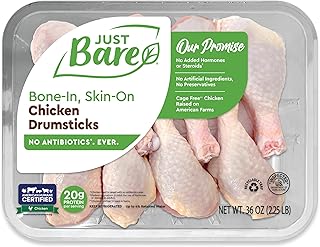Summary of "The Next Pandemic: Antimicrobial Resistance and You | Dr Srijan Jindal | TEDxNorthwich"
Summary of “The Next Pandemic: Antimicrobial Resistance and You | Dr Srijan Jindal | TEDxNorthwich”
Main Ideas and Concepts
Introduction with a Personal Story The talk begins with a poignant story of Kirsty, a baby who died from sepsis caused by a multi-drug resistant bacterial infection. This personal narrative illustrates the deadly impact of antimicrobial resistance (AMR) on individuals and families.
What is Antimicrobial Resistance (AMR)? AMR occurs when bacteria evolve to resist the effects of antibiotics, rendering treatments ineffective and infections harder to cure. This resistance is a growing global health threat predicted to cause over 10 million deaths annually by 2050, surpassing deaths from HIV, malaria, and road accidents.
How Bacteria Develop Resistance - Antibiotics act like poisons targeting bacteria, aiming to kill or stop their growth. - Bacteria are likened to fortified castles; when antibiotics fail to destroy them, bacteria learn and strengthen their defenses, becoming resistant. - There are limited ways to “destroy the castle,” and no new class of antibiotics has been developed since 1987, limiting treatment options.
Current Challenges - Overprescription and misuse of antibiotics in humans and animals accelerate AMR. - Up to half of prescribed antibiotics may be unnecessary or ineffective. - Antibiotics are heavily used in livestock not to treat illness but to promote growth, contributing significantly to resistance in the environment.
Solutions and Actions to Combat AMR Dr. Jindal emphasizes both scientific advancements and individual responsibility in fighting AMR.
Scientific and Medical Advances
- Development of rapid diagnostic tools to quickly and accurately prescribe the correct antibiotic, reducing misuse.
- COVID-19 highlighted the potential of rapid diagnostics to control pandemics and improve treatment accuracy.
Five Major Individual Actions to Combat AMR
- Avoid meat treated with antibiotics Choose meat labeled “no antibiotics used” or “raised without antibiotics” to reduce exposure to antibiotic-resistant bacteria.
- Maintain food hygiene Keep raw meat separate from other foods and wash hands after handling it to prevent infection spread.
- Practice proper hand hygiene
- Wash hands regularly with soap, especially after contact with animals.
- Soap is preferred over hand sanitizers because it removes bacteria and harmful chemicals, while sanitizers only kill bacteria and can be less effective if substandard.
- If using hand sanitizer, ensure it contains over 60% alcohol and rub until dry.
- Use antibiotics responsibly
- Do not demand antibiotics from doctors, especially for viral infections like the flu.
- Ask your doctor if an antibiotic is truly necessary and effective for your illness.
- Always complete the full prescribed course of antibiotics.
- Never share antibiotics with others.
- Educate others about AMR Raise awareness of the dangers of AMR to encourage responsible antibiotic use and hygiene practices.
Historical Warning and Current Reality Sir Alexander Fleming, who discovered penicillin, warned in 1945 about the dangers of antibiotic misuse leading to resistance. Despite this early warning, society has largely ignored the risks, resulting in the current crisis.
Positive Developments and Ongoing Challenges - Antibiotic sales for livestock have decreased by about one-third between 2011 and 2018, showing progress. - However, AMR continues to kill millions annually and threatens to cause massive economic losses (estimated $100 trillion per year by 2050). - AMR deaths in 2019 (1.3 million) were close to COVID-19 deaths in 2020 (1.9 million), yet AMR receives far less attention.
Call to Action The fight against AMR requires everyone’s participation—scientists, healthcare providers, policymakers, and individuals. Dr. Jindal urges the audience to think carefully before using antibiotics and to recognize AMR as the next severe pandemic threat.
Detailed Instructions to Fight AMR
-
Avoid Antibiotic-Treated Meat
- Purchase meat labeled “no antibiotics used” or “raised without antibiotics.”
- Be aware that many meat products are mislabeled.
-
Maintain Food Hygiene
- Keep raw meat separate from other foods.
- Wash hands thoroughly after handling raw meat.
-
Practice Proper Hand Hygiene
- Wash hands regularly with soap and water, especially after touching animals.
- Prefer soap over hand sanitizers because soap removes bacteria and harmful chemicals.
- If using hand sanitizer, ensure it contains more than 60% alcohol and rub hands until dry.
-
Use Antibiotics Responsibly
- Do not demand antibiotics from doctors, especially for viral infections like the flu.
- Ask your doctor if an antibiotic is truly necessary and effective for your illness.
- Always complete the full prescribed course of antibiotics.
- Never share antibiotics with others.
-
Educate Others About AMR
- Raise awareness of the dangers of AMR to encourage responsible antibiotic use and hygiene practices.
Category
Educational
Share this summary
Featured Products




